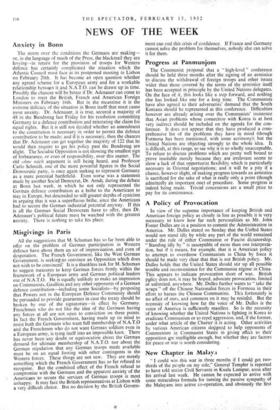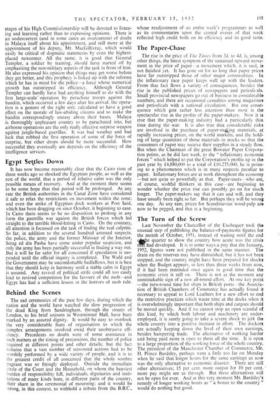New Chapter. in Malaya
" I could win this war in three months if I could get two- thirds of the people on my side," General Templer is reported to have told senior Civil Servants in Kuala Lumpur, soon after his arrival last week. He cannot be expected to arrive with some miraculous formula for turning the passive sympathy of the Malayans into active co-operation, and obviously the first stages of his High Commissionership will be devoted to listen- ing and learning rather than to expressing opinions. There is an undercurrent (and in some cases an overcurrent) of doubt in Malaya itself about his appointment, and still more at the appointment of his deputy, Mr. MacGillivray, which would easily be critical of dogmatic statements by even the highest- placed newcomer. All the same, it is good that General Templer, a soldier by training, should have started off by emphasising the non-military aspects of the task in front of him. He also expressed his opinion that things may get worse before they get better, and this prophecy is linked up with the reforms which he has in mind for the police—a force whose numerical growth has outstripped its efficiency. Although General Templer can hardly have had anything himself to do with the first large-scale' operation by parachute troops against the bandits, which occurred a few days after his arrival, the opera- tion is a gesture of the right sort, calculated to have a good- effect on the morale of law-abiding citizens and to make the bandits correspondingly uneasy about their bases. Malaya is thoroughly unpleasant country to be parachuted into, but airborne operations are the only really effective surprise weapon against jungle-based guerillas. It was bad weather and bad luck that robbed the first operation of some of the force of surprise, but other drops should be more successful. How successful they eventually are depends on the efficiency of the intelligence services.



























 Previous page
Previous page